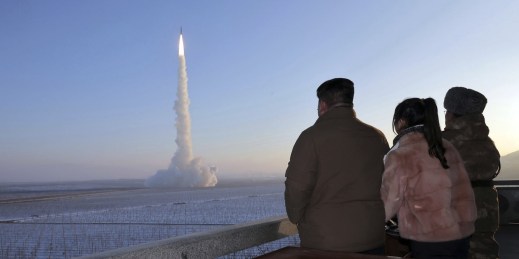Column Archive
Free Newsletter

Narratives about civilian casualties in Gaza misconstrue how casualties are estimated and misunderstand what a civilian is.

The U.S.-Israel relationship is special, but not indestructible. It has limits. Now, it seems Israel has finally found those limits.

As working summits go, Italian Prime Minister Giorgia Meloni’s meeting with Libya’s interim prime minister in Tripoli last week seemed like a routine visit. But her meeting a few hours later in Benghazi with the leader of the rival government there underscored the dangers lurking below the surface of the two sides’ calm relations.

Hundreds of thousands of Chinese students come to the U.S. for their higher education, in part to take advantage of a more open political atmosphere. For this reason, the recent campus crackdowns against pro-Palestine protests offer insights into U.S.-China dynamics, but also the challenges facing U.S. universities as they globalize.

Last week, Nicaragua canceled its deal with a Chinese company to build and manage a canal that stretches across Central America, ending a decade-long saga. Despite this development, China’s influence in Nicaragua has never been greater, in large part due to the diplomatic isolation of President Daniel Ortega’s autocratic government.

Emmanuel Macron recently made clear that he views France’s nuclear deterrent as an essential part of European defense, while Russia engaged in another round of nuclear saber-rattling in order to dissuade further Western support to Kyiv. All of this raises a fundamental question: Are nuclear weapons actually an effective deterrent?

Name-calling among Latin America’s leaders has reached the level of schoolyard smears and taunts, but with far more significant implications. It has resulted in recalled ambassadors and crumbling diplomatic relations. And it has made the longstanding dream of regional integration seem more distant than it has been in decades.










